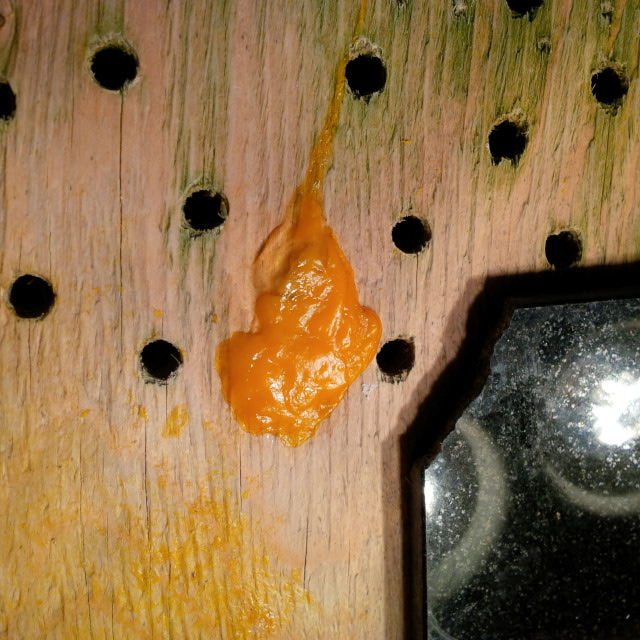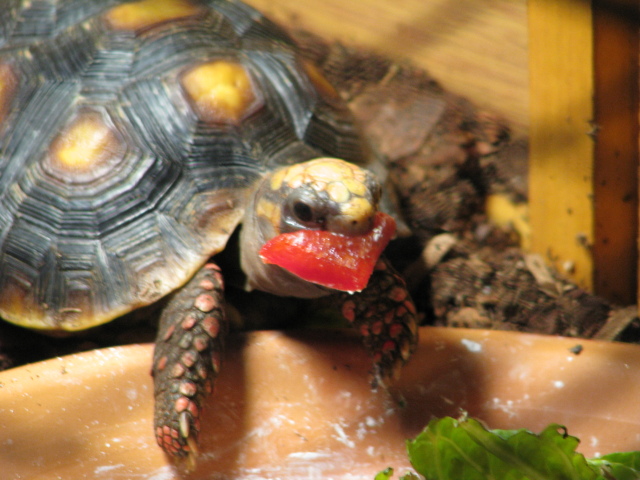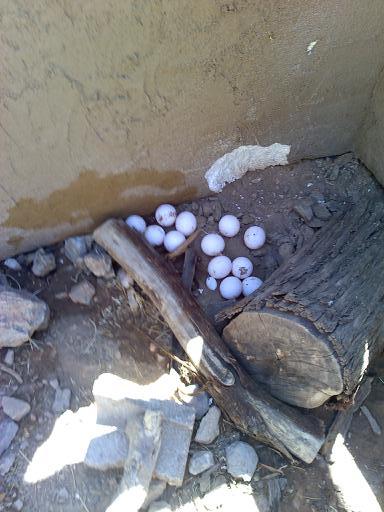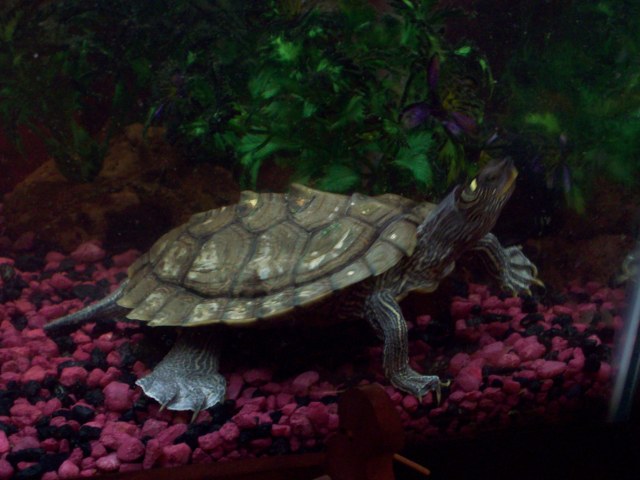Questionhi we found this poor turtle in the road he was bleeding from the neck.the bleeding has stopped however, he seems to only be able to move his neck to the right. I have a small pond and would like to try to rehabilitate him. any suggestions. thank you Tina
AnswerEven though it does not sound right, the poor turtle would be better off in the wild. That way, it gets plenty of sunshine, fresh air, and the food it wants. Yes, you can provide all of this as well, but what you cannot provide is the sense of home it has.
Turtles are 'neophobic'- that is, they fear new things and changes. It causes them great stress to be captured, handled, placed in unfamiliar territories, fed unfamiliar foods, etc.
Captive-bred turtles are a bit more comformatble with the new things, but wild caught turtles are not.
One example of the problems you would face is that wild turtles usually have several parasites in and on them. In the wild, this is annoying but not a big deal- the animal and the parasites live in a balanced relationship. When stressed, however, the parasites begin to 'win' and further stress out and weaken the turtle.
Experienced wildlife rehabbers have better luck, but mostly because they could administer medications, have good habitats all ready to go, and have been taught the techniques it takes. Even with all of this, however, studies suggest that even badly injured animals often have a better success rate when just returned 'home'.
Should you decide to keep him, try this:
- Make sure your pon is warm- 75-80 daytime water temps, with adequate hiding and basking spots. No fish that can harrass the weakened turtle.
- Offer good turtle pellets, worms, insects, shrimp, krill, etc. for food. During rehab, it will need a mix of easy to catch and eat, and harder to catch foods to providee it strentgh and a workout.
- Daily, soak it in a 'turtle sulfa dip' solution to minimize infection.
- Have a vet look at it and a stool sample, then repeat 30 days later, to treat for parasites. If the turtle is too weak for the medications, the vet may have you try that again later.
- Treat any bleeding, shell damage, or other visible injuries by cleaning them with Betadine Solution and antibiotic ointment and letting it dry before putting it back in the pond.
- Keeping the stress to a minimum, monitor it for eating, swimming normally, etc. The first week may be rough for it, but if it can swim and get on the basking surface it should be OK.
- If there is nerve damage and it does not begin to move normally, take it back to the vet.
Rehabbers need to work closely with a vet. You can find a state by state list of reptile-oriented vets, as well as care sheets, medical advice, etc at http://www.austinsturtlepage.com

 sick turtle?
Questioncloseup
further
QUESTION: Hi,
I
sick turtle?
Questioncloseup
further
QUESTION: Hi,
I
 CONSTIPATION
QuestionQUESTION: HI. I HAVE A 6 MONTH OLD RED FOOT TOR
CONSTIPATION
QuestionQUESTION: HI. I HAVE A 6 MONTH OLD RED FOOT TOR
 tortoise laid eggs on the ground
Question
6-4-10
I have a 9 year old, approx 17, healthy
tortoise laid eggs on the ground
Question
6-4-10
I have a 9 year old, approx 17, healthy
 sick spur thigh
Question
Right Left
African Spur Thigh, T
sick spur thigh
Question
Right Left
African Spur Thigh, T
 Trying to figure out what Species my
QuestionQUESTION: Trying to figure out what Species my
Trying to figure out what Species my
QuestionQUESTION: Trying to figure out what Species my